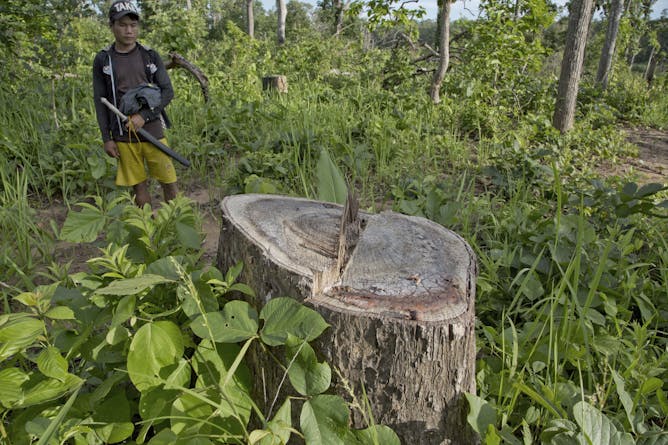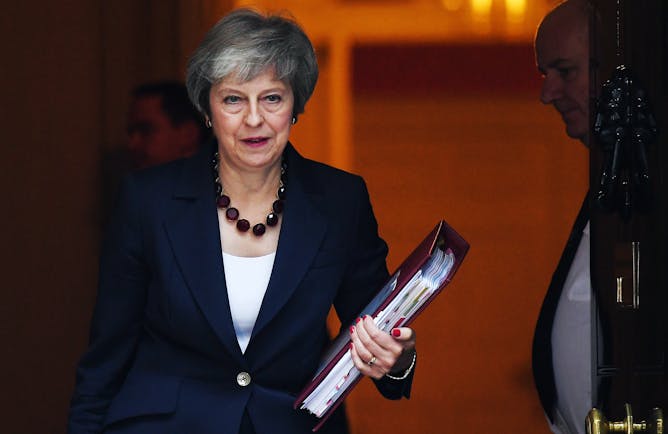|
It’s possible more journalists have died reporting environmental issues than were killed covering the US war in Afghanistan, according to a study from Michigan State University. Researchers talked to environmental journalists on five continents, and found they have a heightened risk of murder, arrest, assault, threats, self-exile, lawsuits and harassment.
And in the UK, experts react to the draft Brexit deal proposed by Prime Minister Theresa May.
|

Journalists who cover illegal operations like logging at this site in northern Sagaing division, Myanmar, can face threats and violence.
AP Photo/Gemunu Amarasinghe
Eric Freedman, Michigan State University
Reporters who cover environment and natural resource issues are commonly threatened and harassed around the world. Some have been killed for coverage that threatens powerful interests.
|

Deal in hand.
EPA-EFE/Andy Rain
Katy Hayward, Queen's University Belfast; Adrienne Yong, City, University of London; Maria Garcia, University of Bath; Michael Gordon, University of Liverpool; Nauro Campos, Brunel University London; Nieves Perez-Solorzano, University of Bristol; Phil Syrpis, University of Bristol
Academic experts explain the key details of the draft Brexit deal agreed by UK and EU negotiators.
|
Arts + Culture
|
-
Andy Hargreaves, Boston College; Pasi Sahlberg, UNSW
Instead of getting "back to basics" to improve math skills, we should make math literacy a priority by developing, attracting and supporting skilled teachers, and improving math literacy at home.
|
|
Environment + Energy
|
-
Douglas Brugge, Tufts University; Kevin James Lane, Boston University
The head of the World Health Organization calls air pollution 'the new tobacco' because it causes millions of preventable deaths yearly. Fine particle pollution is especially deadly.
-
Helen Phillips, University of Tasmania; Benoit Legresy, CSIRO; Nathan Bindoff, University of Tasmania
The Antarctic Circumpolar Current provides a barrier to heat that keeps warm subtropical waters away from Antarctica. Yet, there are a few places where the heat gets through.
|
|
Health + Medicine
|
-
Wei-Chiao Huang, University at Buffalo, The State University of New York; Jonathan Lovell, University at Buffalo, The State University of New York
Researchers have tried unsuccessfully for decades to develop a malaria vaccine. Now a new approach, showing promise in mice, suggests it is possible to block mosquitoes from spreading the disease.
-
Philip Crilly, Kingston University
Don't mix your statins with grapefruit, or leafy green vegetables with warfarin.
|
|
Politics + Society
|
-
Namhla Matshanda, University of the Western Cape
Tensions, both within Ethiopia and between Ethiopia and its neighbours, are rooted in history.
|
|